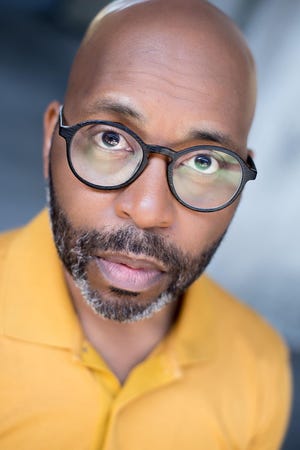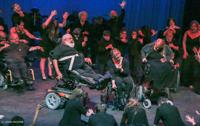A heartrending reminder never to forget in New York City Opera’s ‘The Garden of the Finzi-Continis’ at the Museum of Jewish Heritage

Opening last evening on Intercontinental Holocaust Remembrance Working day, the earth premiere of the American operatic adaptation of The Garden of the Finzi- Continis by Ricky Ian Gordon (composer) and Michael Korie (librettist), primarily based on the 1962 historic novel by Giorgio Bassani, tells the heartrending go-back tale of two Italian-Jewish family members in Ferrara – the eponymous aristocrats dwelling on a magnificent walled estate with an expansive generations-outdated backyard, and that of the center-class central protagonist and narrator Giorgio – all through the increase of Mussolini, fascism, and anti-Semitic racial regulations on the eve of WWII. Co-manufactured by New York Metropolis Opera (the company’s 37th globe premiere due to the fact its founding by Mayor Fiorello La Guardia in 1943, as “The People’s Opera”) and the Nationwide Yiddish Theatre Folksbiene, and directed by Michael Capasso and Richard Stafford (who also offered the generation thought), the profoundly impacting get the job done, penned and sung in English, plays by Sunday, February 6, at the Museum of Jewish Heritage – A Living Memorial to the Holocaust, devoted to preserving the true historical document and teaching the horrific dangers of intolerance.

Framed by a prologue and epilogue set through the article-war era in 1955, the personal two-act opera, commencing in 1927, traces the life and associations of its figures, from the childhood reminiscences of Giorgio (with the main narrative centered on Giorgio’s unrequited enjoy for Micòl Finzi-Contini, and her brother Alberto’s for their mate Giampi Malnate – a parallel to their appreciate for a region that no for a longer period loves them), by means of the expanding social limits and own effects of Italy’s alliance with Nazi Germany a decade later on in 1937-39, to the devastating reality of the deportation of Italy’s Jews to German focus camps in 1943 (which includes 183 from Ferrara). However the wealthy titular conservative republican loved ones believed they could evade the danger in the haven of their wonderful garden, they soon found that they, much too – like the quite a few many others who convinced themselves that the hateful motion would shortly move – became victims of the unimaginable racial discrimination and inconceivable atrocities of the outside world.
Performed by Maestro James Lowe, a fifteen-piece orchestra delivers the increasing dissonance of Gordon’s rating, in trying to keep with the remarkable matter, which contrasts with passages of a harmonious Jewish congregation at their focused synagogue, melodious purchasers and distributors on the Rialto in Venice expressing their perception that “beauty never dies,” and the upbeat jazz-impressed songs and dance of the former male classmates (prior to the exclusion of Jews from Italian colleges) making the most of the well known data of the Huge Bands.

The solid is led by tenor Anthony Ciaramitaro, in an emotionally expressive effectiveness as Giorgio (whose father was an early proponent of Mussolini), and soprano Rachel Blaustein, producing a stellar NYCO as debut Micól (who senses the doom and the chance of becoming the final in the long Finzi-Contini line), with baritones Brian James Myer as the stricken Alberto and Matt Ciuffitelli as the typically-duplicitous Malnate. They are supported by Mary Phillips and Franco Pomponi as the involved mothers and fathers, and the firm of D’Marreon Alexander, Robert Balonek, Adam Cioffari, Peter Kendall Clark, Dani Goldstein, Spencer Hamlin, Kristee Haney, Rebecca Hargrove, Sarah Heltzel, Adam Klein, Meredith Krinke, Melanie Prolonged, Violet Paris, Gabe Ponichter, Sami Sallaway, Drew Seigla, Markos Simopoulos, Rosy Anoush Svazlian, Tim Roller, and Rachel Zatcoff.
A minimalist scenic design, with set and projections by John Farrell, establishes the changing locales via illustrations or photos projected on simple white panels. Lights by Susan Roth sets the times of working day and the moods of the scenes, and costumes by Ildikó Debreczeni define the characters, their socio-economic courses and political affiliations (from the identifying yellow armbands Jews had been compelled to wear to the uniforms of the National Fascist Party’s Black Shirts), and the expanding gloom of the times, as the total tone and palette switch from summery white to darkish and dismal wintry hues. And diction mentor Lucy Tucker Yates provides functioning supertitles higher than the middle of the stage, for the two the predominantly English-language lyrics and people sung in Hebrew and Italian.

While there are some unnecessarily extended scenes (amid them the ebullient tennis matches of the young close friends at the Finzi-Contini tennis court docket) that insert to the length of the output, the historically dependent opera continues to be a well timed story and a lesson that, regrettably, still requires to be taught nowadays, with the recent escalation in detest crimes and anti-Semitic attacks in our nation. By no means forget and don’t let it occur once more.
Functioning Time: Around two hours and 50 minutes, together with an intermission.

The Garden of the Finzi-Continis performs by means of Sunday, February 6, 2022, at New York City Opera and the Countrywide Yiddish Theatre Folksbiene, accomplishing at the Museum of Jewish Heritage – A Residing Memorial to the Holocaust, Edmond J. Safra Corridor, 36 Battery Place, NYC. For tickets (priced at $50-125), get in touch with (855) 449-4658, or go on the net. Absolutely everyone need to clearly show evidence of COVID-19 vaccination and a photo ID to enter the building and will have to wear a mask at all occasions when inside of.





